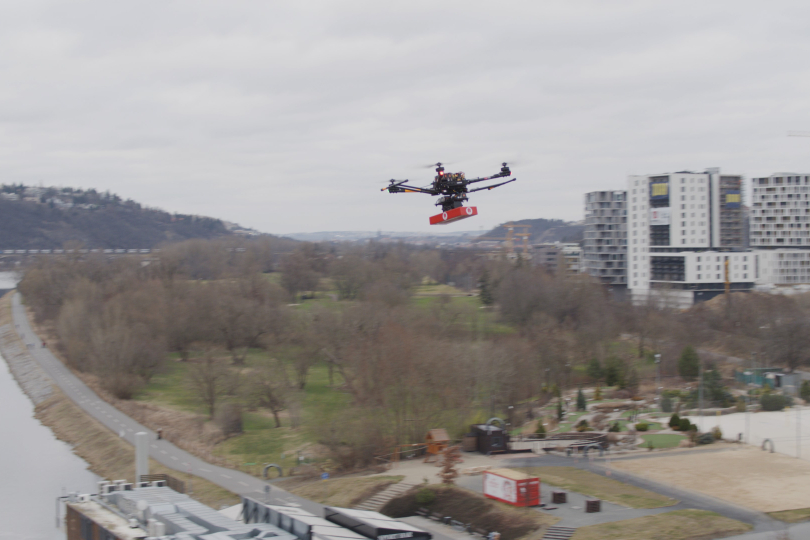
The Future of Musical Instrument Transport? Kytary.cz Sent a Ukulele by Drone
The musical instrument retailer Kytary.cz tested out under what conditions they could deliver an order to a customer by air. At their site in Modřany in Prague, they performed a simulation in which a musical instrument carried by a drone was sent and handed over to the customer. In doing so, the Czech brand, which also has dealerships in most European countries, has tested out new ways of delivering goods. It's all about speed, efficiency, reducing the burden on the environment, and cutting emissions. This alternative means of delivering consignments is also down to the global Covid-19 pandemic. Whether shipments will eventually be delivered in this way depends on how the legislation changes.
"Until recently, similar tests were more of a PR stunt. Since some companies in the USA and Europe obtained a special license for test deliveries of lightweight packages using a drone within a 25-kilometer range, the situation has started to change. We want to be ready when this becomes the case throughout the EU. Introducing such a scheme in a company of our size would take several years, which is why we’re starting to experiment now. We want to see what drones we’d have to buy and how many pilots we’d have to employ," says Filip Černý, Kytary.cz marketing director.
According to him, one advantage is that Kytary.cz does not have to transport the goods to a distribution center, from where they would fly out to customers. Everything could be under one roof. It would take roughly 10 to 12 minutes to process an order and send out the drone. "For customers from the Czech Republic and other European countries, delivery speed, as well as convenience, is an increasingly decisive factor when ordering goods," he adds.
The Kytary.cz test used a specially modified drone with a large payload. It had a special device that carried the package with the ukulele and allowed it to be released and handed over in front of the "customer". "This was a test flight, which we had to adapt to the current legislation. Everything went exactly as planned. New EU-wide regulations on the operation of drones are gradually being put into practice, and the time when this type of transport can be used is not far away," said drone pilot Štěpán Matěna.
The company expects that it would take around 15 or 20 minutes to deliver goods within Prague and Brno, where there are stores. Studies show that using drones also generates fewer emissions and the delivery cost should be lower than conventional commercial food deliveries in cities, for example.
For now, the drone used by Kytary.cz is limited to a maximum load of 2.5 kg, which is ideal for carrying strings, drumsticks, tuners, or even smaller instruments such as a ukulele, kalimba, or clarinet. Whether this test flight of a drone carrying goods will eventually become a reality depends on how the legislation changes. There could be a major shift in this regard after drones have been integrated into the common airspace and certified in terms of quality and operational safety. "In any case, our goal for the future would be to deliver dozens of small packages weighing up to two kilograms every day," concludes Filip Černý.
Last year the Czech e-shop Kytary.cz entered three new European markets—Ireland, Spain, and the Netherlands. Over the last several years, it has proved a great success in Slovakia, Poland, Romania, Hungary, Germany, Austria, Italy, and France.
If you have found an error or typo in the article, please let us know by e-mail info@insounder.org.



